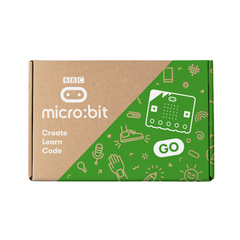The Micro:bit Educational Foundation has announced the manufacturing and launch of the latest version of the micro:bit.
The BBC micro:bit, a pocket-sized computer helping to inspire more than 25 million children to learn digital creativity and computing skills, will receive its first major updates since launching in 2016.
Available from mid-November 2020, it will now include a built-in speaker and microphone, enabling people to learn through sound and to get creative with it straight out-of-the-box. The hardware also includes a number of technical upgrades to ensure that in the future the device is an ideal tool for exploring, understanding and experimenting with AI and ML, as these technologies begin to transform the planet.
The new microbit continues to support all of the same features that teachers and students have come to love, and all the existing lessons and code for the original microbit will be compatible with the new device. In addition, as part of the Micro:bit Educational Foundation’s commitment to keeping the device as cost-effective and accessible as possible, the new device will be released in November at a similar price point to the original.
What's New
- Sense sound and transform projects with the microphone
- Make sound and bring your micro:bit to life with the speaker
- Program the gold micro:bit logo to respond to your touch
- More computing power
- Handy power save button

Comparison Chart
| Feature | Current (V1.5) | Latest (v2) |
| Processor | Nordic Semiconductor nRF51822 | Nordic Semiconductor nRF52833 |
| Memory | 256kB Flash, 16kB RAM | 512kB Flash, 128kB RAM |
| Interface | NXP KL26Z, 16kB RAM | NXP KL27Z, 32kB RAM |
| Microphone | N/A | MEMS microphone and LED indicator |
| Speaker | N/A | On board speaker |
| Logo Touch | N/A | Touch sensitive logo pin |
| Edge Connector | 25 pins. 3 dedicated GPIO, PWM, i2c, SPI and ext. power. 3 ring pins for connecting crocodile clips/banana plugs. |
25 pins. 4 dedicated GPIO, PWM, i2c, SPI and ext. power. 3 ring pins for connecting crocodile clips/banana plugs. Notched for easier connection |
| I2C | Shared I2C Bus | Dedicated I2C Bus for peripherals |
| Wireless | 2.4Ghz Micro:bit Radio/BLE Bluetooth 4.0 | 2.4Ghz Micro:bit Radio/BLE Bluetooth 5.0 |
| Power | 5V via Micro USB port, 3V via edge connector or battery pack | 5V via Micro USB port, 3V via edge connector or battery pack, LED power indicator, Power off (push and hold power button) |
| Current Available | 90mA available for accessories | 200mA available for accessories |
| Motion Sensor | ST LSM 303 | ST LSM 303 |
| Software | C++, MakeCode, Python, Scratch | C++, MakeCode, Python, Scratch |
| Size | 5cm(w) x 4cm(h) | 5cm(w) x 4cm(h) |
New Way to Connect Crocodile Clips

Micro:bit Packaging

BBC micro:bit v2 GO
Contents
1x Micro:bit Board, 1x User Guide, 1x USB Cable, 1x Battery Holder & 2x AAA Batteries.

BBC micro:bit v2 Club
Contents
10x Micro:bit Board, 10x User Guide, 10x USB Cable, 10x Battery Holder & 20x AAA Batteries.
Important Info
Updating .hex files
The editors and apps are being updated over the coming weeks and are currrently in beta. When they are released, you should update any compiled .hex files that you host as part of your resources. To do this, simply drag and drop them into the editor in which they were created and then download the .hex file.Universal Hex Note that the updated file will be ~1.8Mb as opposed to ~700Kb in size. This increase in size means that the hex file can be used on any board revision and is called a Universal Hex file.
Bluetooth BLE
A hex file that enables all micro:bit Bluetooth services is available to use for testing BLE. Download the updated version of the BLE all services hex.
Code Editors
The editors will support both versions simultaneously for features common to both boards, for example the motion sensor, LEDs, buttons etc.
Makecode
You can use the latest board revision in the beta editor https://makecode.microbit.org/betaAn extension has been developed to include the microphone and logo touch features currently available. https://github.com/microbit-foundation/pxt-microbit-v2-extension
- Open https://makecode.microbit.org/beta
- Select Advanced > Add Extension and paste https://github.com/microbit-foundation/pxt-microbit-v2-extension into the search box.
- Click on the extension to add it to the toolbox.
The Speaker features can be found in the music menu.
Python
You can use the latest board revision and APIs in the Python beta editor: https://python.microbit.org/v/betaIf you want to use a specific or custom build of MicroPython you can do this in Mu.
- Drag and drop the MicroPython binary on to the MICROBIT drive
- Open the Files tab in Mu and copy main.py from the Files on your computer to the Files on your micro:bit


 BBC micro:bit v2.21 GO -
BBC micro:bit v2.21 GO - 






